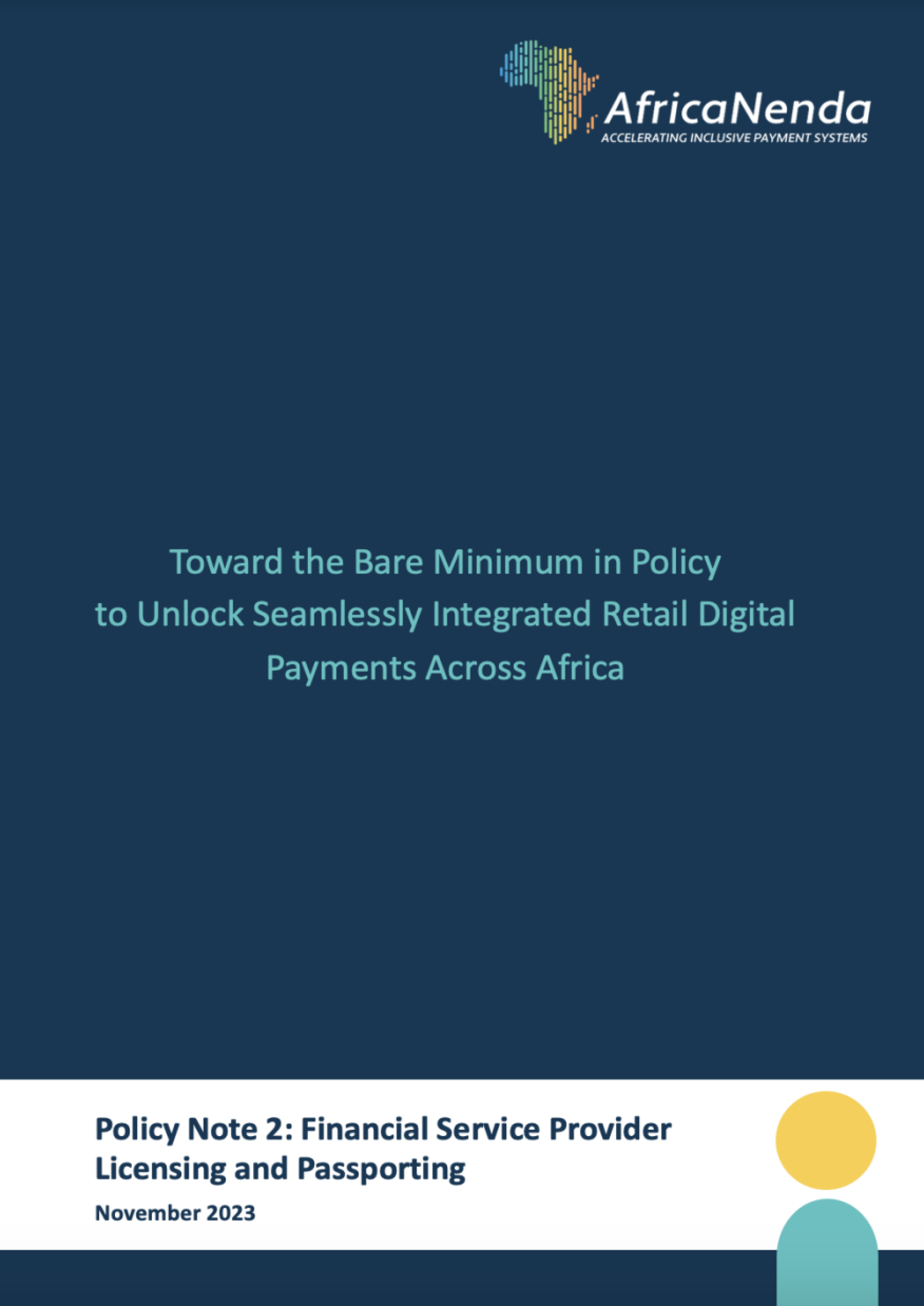
Publications
AfricaNenda Policy Note 2
21 November 2023

Financial Service Provider Licensing and Passporting
The financial services industry is rapidly evolving as Africa becomes increasingly connected and digitized. FSPs are at the forefront of this transformation, revolutionizing financial services with innovative digital solutions. To promote the growth of cross-border digital financial services that would enable digital trade, it is crucial to review policies and regulations to enable fintech licensing and passporting. This policy note provides insight into the policy and regulatory requirements for establishing seamlessly integrated retail cross-border digital payments across Africa. The note observes that a key enabler for cross-border digital payments is FSP license passporting rights, which allow FSPs authorized in one country to operate in another without requiring a completely new and separate licensing process. This note identifies several policy and regulatory reforms that could be implemented to promote FSP license passporting rights in Africa.
FSPs (especially non-bank FSPs) gain access to a broader market and can scale their operations across jurisdictions. This helps to drive innovation, competition, and consumer choice, ultimately benefiting both individuals and businesses.
- Regulatory clarity and compliance: A comprehensive licensing and passporting framework clarifies regulatory requirements and promotes consistency across multiple jurisdictions. FSPs can better understand and comply with the rules, reducing regulatory uncertainty and costs.
- Cross-border collaboration: FSP licensing and passporting facilitate cross-border collaboration and well as other regulators such as competition authorities and communication authorities, among others. This collaboration fosters knowledge exchange, innovation, and the development of best practices, ensuring a balanced and inclusive approach to digital finance.
- Innovation: Licensing and passporting encourage FSPs to invest in research and development, driving innovation and technological advancement in the financial services sector. This benefits FSPs, promoting a more efficient, customer-centric, and resilient financial system
By implementing these reforms, African countries can take full advantage of the AfCFTA by creating a more enabling environment for cross-border digital payments, boosting digital trade and economic growth. While the importance of licensing and passporting for cross-border digital financial services is evident, the next set of challenges and considerations will have to be addressed:
- Regulatory harmonization: Developing a harmonized regulatory framework is essential to enable effective risk-proportionate licensing and passporting, and standards must be aligned across jurisdictions. International cooperation and coordination are necessary to overcome differences in regulatory approaches.
- Risk management: Efficient risk management is crucial to safeguarding financial stability and consumer protection. Regulators must balance fostering innovation and managing risks associated with cross-border digital financial services.
- Privacy and data protection: Cross-border data flows are integral to digital financial services. However, privacy and data protection concerns should be addressed through robust regulatory frameworks, ensuring that personal data is securely handled and respecting privacy rights. We will get into the details of data protection in our final policy note in this series.